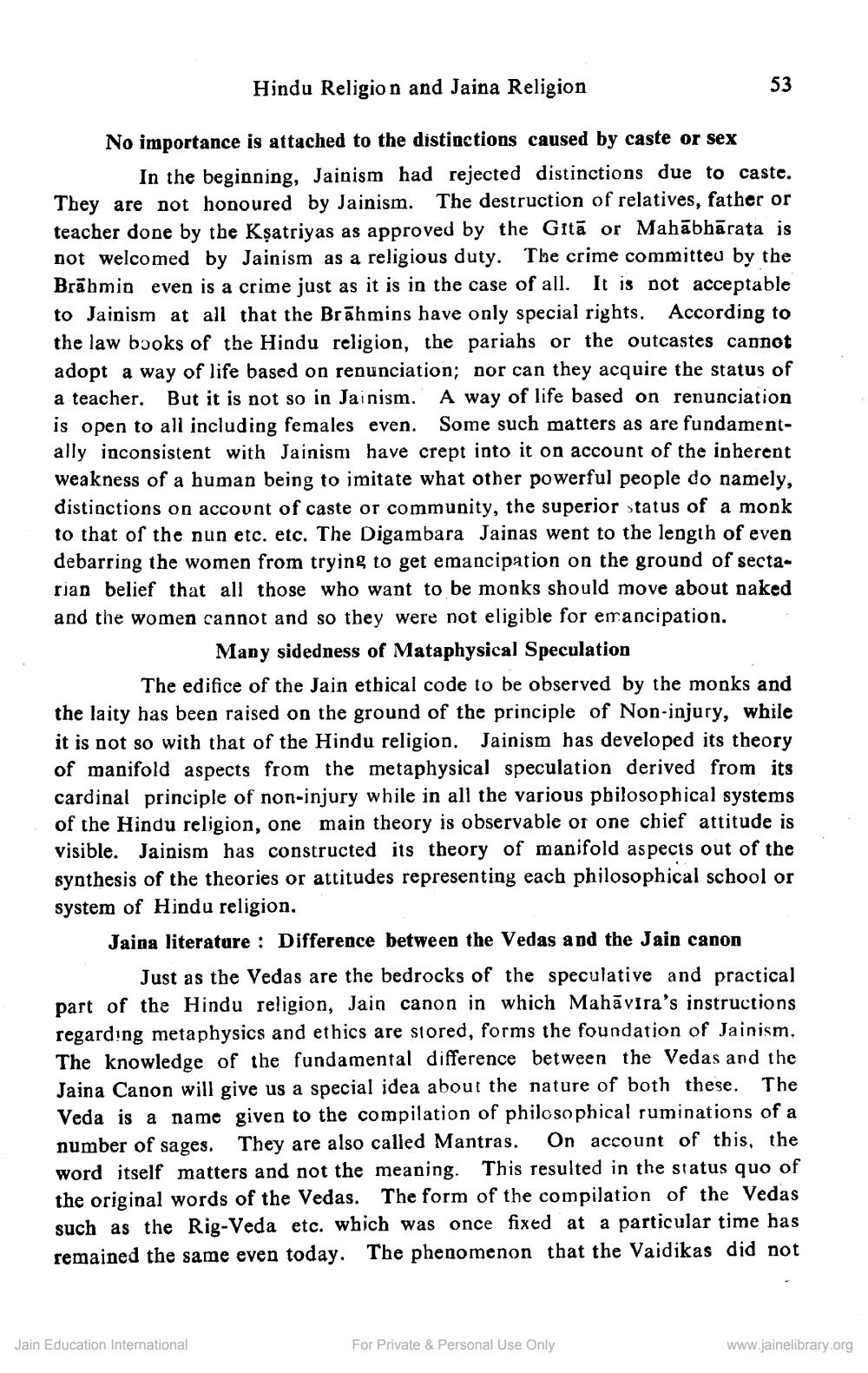________________
Hindu Religion and Jaina Religion
53
No importance is attached to the distinctions caused by caste or sex
In the beginning, Jainism had rejected distinctions due to caste. They are not honoured by Jainism. The destruction of relatives, father or teacher done by the Ksatriyas as approved by the Gitā or Mahābhārata is not welcomed by Jainism as a religious duty. The crime committed by the Brābmin even is a crime just as it is in the case of all. It is not acceptable to Jainism at all that the Brāhmins have only special rights. According to the law books of the Hindu religion, the pariahs or the outcastes cannot adopt a way of life based on renunciation; nor can they acquire the status of a teacher. But it is not so in Jainism. A way of life based on renunciatio is open to all including females even. Some such matters as are fundamentally inconsistent with Jainism have crept into it on account of the inherent weakness of a human being to imitate what other powerful people do namely, distinctions on account of caste or community, the superior status of a monk to that of the nun etc. etc. The Digambara Jainas went to the length of even debarring the women from trying to get emancipation on the ground of secta. rian belief that all those who want to be monks should move about naked and the women cannot and so they were not eligible for emancipation.
Many sidedness of Mataphysical Speculation
The edifice of the Jain ethical code to be observed by the monks and the laity has been raised on the ground of the principle of Non-injury, while it is not so with that of the Hindu religion. Jainism has developed its theory of manifold aspects from the metaphysical speculation derived from its cardinal principle of non-injury while in all the various pbilosophical systems of the Hindu religion, one main theory is observable of one chief attitude is visible. Jainism has constructed its theory of manifold aspects out of the synthesis of the theories or attitudes representing each philosophical school or system of Hindu religion.
Jaina literature : Difference between the Vedas and the Jain canon
Just as the Vedas are the bedrocks of the speculative and practical part of the Hindu religion, Jain canon in which Mahā vira's instructions regarding metaphysics and ethics are stored, forms the foundation of Jainism. The knowledge of the fundamental difference between the Vedas and the Jaina Canon will give us a special idea about the nature of both these. The Veda is a name given to the compilation of philosophical ruminations of a number of sages. They are also called Mantras. On account of this, the word itself matters and not the meaning. This resulted in the status quo of the original words of the Vedas. The form of the compilation of the Vedas such as the Rig Veda etc. which was once fixed at a particular time has remained the same even today. The phenomenon that the Vaidikas did not
Jain Education International
For Private & Personal Use Only
www.jainelibrary.org




